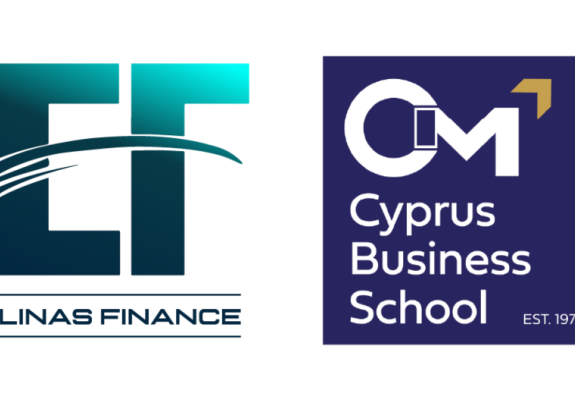The First Step is the Hardest
Getting started in the age of exponential growth and AI innovation
“It is our job to create computing technology such that nobody has to program. And that the programming language is human, everybody in the world is now a programmer. This is the miracle of artificial intelligence.”
- Jensen Huang, NVIDIA CEO, February 2024
This statement came as no surprise to the experts in the field of AI and most experienced software developers. However, the scale of the repercussions of the above words has not yet registered with the general public. As of the time of writing this article, AI tools are seen either negatively or - in the best case - neutrally. Using ChatGPT as a salesman to help you write an email to engage a client? Some will say “You are cheating - if you cannot do it on your own, you have chosen the wrong career path,” all the while this initiative might be accepted if done by a ML Engineer. Practicing your interview skills on character.ai? That’s strange - why not role play with a friend instead? The tidal forces of innovation are pulling us in a new direction for the first time 77 years, since the invention of the transistor - we have found the optimal application for all the hardware developments of the better part of the last century. To fully grasp the rate of change that is ahead of us - what we will witness in our lifetimes - one must understand the concept of positive feedback loops.
Positive feedback loops are processes where the output of a system amplifies the initial input, leading to exponential growth or decline. Mathematically, if we denote the initial input as I and the amplification factor as α, the subsequent input I’ after one loop can be expressed as
I' = α · I
This cycle continues, leading to
I'' = α · I' = a^2 · I
and so on, resulting in rapid escalation or diminution depending on the nature of α.
In various domains, positive feedback loops manifest in distinct ways. In economics, they can be seen in investment and market growth where initial profits encourage more investment, further increasing profits. In biology, they are evident in population dynamics, where an increase in individuals leads to more births, thereby accelerating population growth. In AI and machine learning, these loops are crucial, particularly in the context of data and model improvements. More data improves model accuracy, which attracts more users, generating even more data, thus continuing the cycle.
Anyone with access to AI tools can harness these feedback loops in their daily activities. For instance, using machine learning models to optimize personal workflows or business processes can significantly enhance productivity. This improvement, in turn, provides more data and insights, further refining the models. The democratization of AI tools means that not just data scientists but people from all walks of life can contribute to and benefit from these systems. The analogy of a million monkeys with typewriters illustrates this phenomenon: with a vast number of individuals experimenting and applying AI creatively, novel solutions and approaches emerge at an unprecedented rate.
This collective effort accelerates AI development, as diverse inputs and applications lead to unforeseen innovations. Consider the discovery of the ReLU (Rectified Linear Unit) activation function: its initial use dates back to K. Fukushima’s 1969 paper “Visual Feature Extraction by a Multilayered Network of Analog Threshold Elements,” published in IEEE Transactions on Systems Science and Cybernetics. However, it wasn’t until 2010 (41 years later) that the superiority of ReLU was demonstrated by Vinod Nair and Geoffrey E. Hinton in their paper “Rectified Linear Units Improve Restricted Boltzmann Machines,” presented at the International Conference on Machine Learning (ICML).
Before its advantages were fully understood and documented, ReLU was used experimentally by various researchers. The breakthrough came when it was shown that ReLU significantly improved neural network training by mitigating the vanishing gradient problem, leading to faster convergence and better performance. This rapid acceptance and application were achieved because many researchers were experimenting and sharing their findings, creating a rapid cycle of innovation.
In the same way, the widespread application of AI tools by millions of users can lead to groundbreaking advancements at an unprecedented rate. As more people experiment with AI, novel solutions and approaches emerge, accelerating academic breakthroughs. This positive feedback loop doesn’t just enhance individual tasks but propels the entire field of AI forward, fostering a continuous cycle of improvement and discovery. By democratizing access to AI, we empower everyone to contribute to and benefit from the rapid pace of AI advancements, ultimately driving the next wave of innovation.
The connectivity provided by social networks, combined with the accessibility of AI tools, creates a great opportunity for innovation. Jensen Huang’s vision, where “everybody in the world is now a programmer,” marks a new era where people can use AI without needing advanced math or coding skills. By sharing experimental results and creative uses of AI tools, innovation can happen quickly.
Social networks allow instant sharing of ideas and experimental outcomes, enabling real-time collaboration and feedback. This speeds up innovation as new approaches and solutions can be quickly spread and improved.
The democratization of AI tools lets people from different backgrounds contribute to the AI revolution. By using AI to write AI code, traditional programming barriers are removed, allowing creativity to flourish. This inclusive approach brings more perspectives and ideas, increasing the chances of significant breakthroughs.
Using positive feedback loops and social networks, a global community of AI users can achieve academic and practical advancements faster than ever before. So this is the moment where I encourage you, dear reader, to take the first step - if there was ever a brilliant idea or even just a motivation to try your hand at AI, there no longer remain any valid excuses or barriers to entry. Join online communities, get your hands on AI tools that will augment any area where you lack skills or knowledge, and participate in a historical moment.






